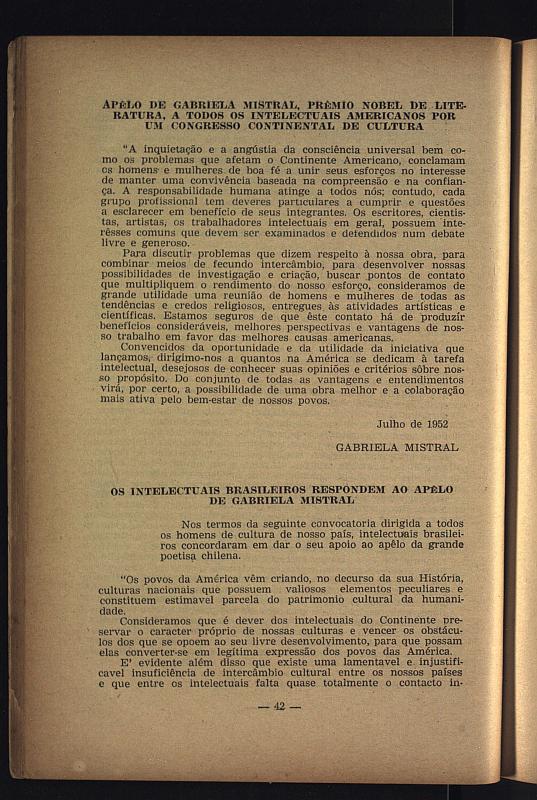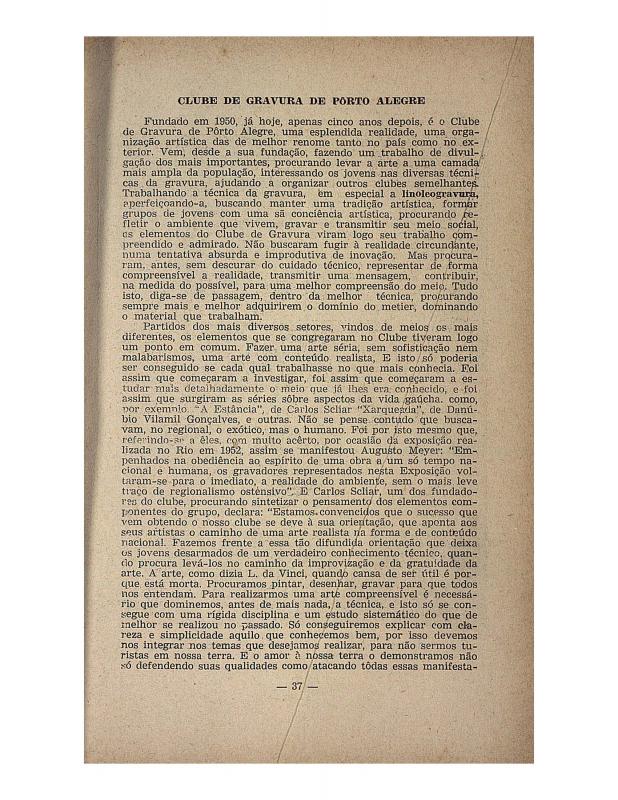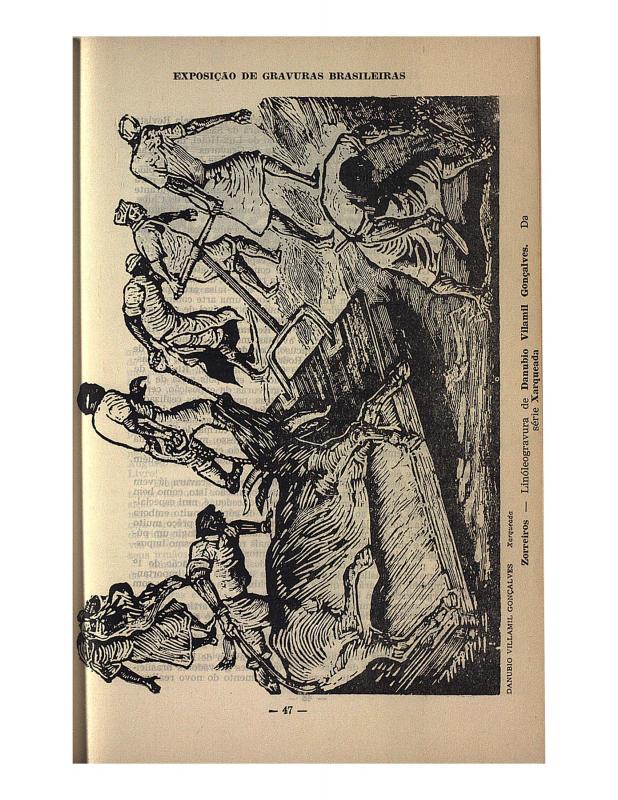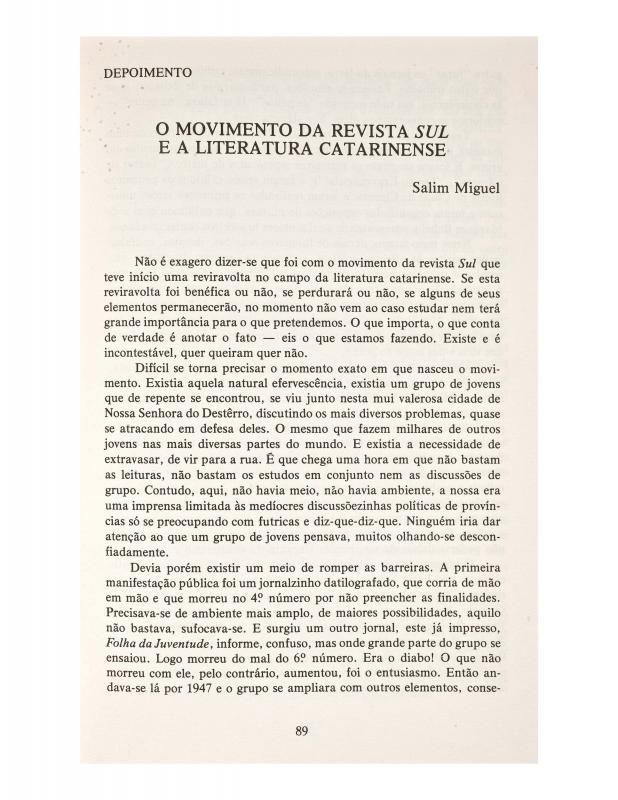The Primeiro Congresso Nacional de Intelectuais was supported by nearly one thousand Brazilian professionals, among them artists, writers, musicians, architects, filmmakers, and folklorists. The congress had international repercussions thanks to the participation of Chilean poet Pablo Neruda, who had organized a similar event on Latin American culture in Santiago two years earlier. (See “Os intelectuais brasileiros respondem ao apêlo de Gabriela Mistral” (doc. no. 807597) and the continent-wide announcement of the event “Apelo de Gabriela Mistral” (doc. no. 807576)). The steering committee included important Brazilian figures like filmmakers Alberto Cavalcanti and Lima Barreto, writer and art critic José Geraldo Vieira, actress Maria Della Costa, and physicist and art critic Mário Schemberg.
The congress took place in 1954, the same year that President Getúlio Vargas committed suicide, bringing to an end a dictatorship known as the Estado Novo that began in 1930. It was for that reason that one of the event’s core concerns was “the free expression of thought.” The congress’s resolutions include the affirmation of a national culture, one “vigorous and representative of Brazil” to be protected from “influences that threaten to corrupt it.”
For further reading, see the following texts, also by Salim Miguel: “Clube de Gravura de Pôrto Alegre” (doc. no. 1110335); “Exposição de gravuras brasileiras” (doc. no. 1110338); and “O movimento da Revista Sul e a literatura catarinense” (doc. no. 1111405).




